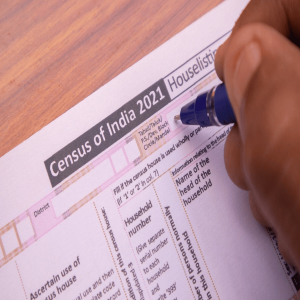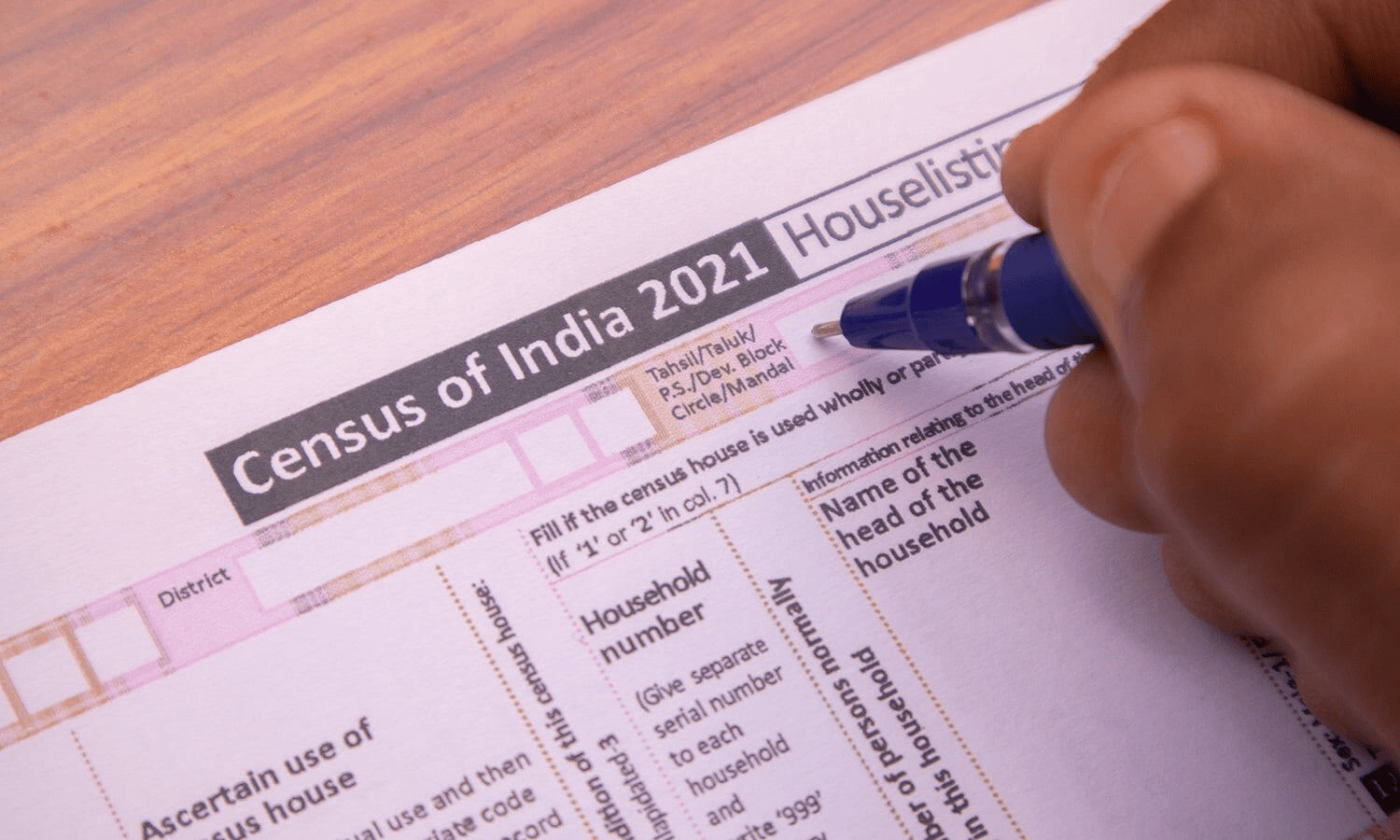
.jpg) Dr. John Singarayar
Dr. John Singarayar

For the Government of India, the decennial census is essential for obtaining demographic, social, economic, and cultural data that guides the nation's resource allocation, policymaking, and social welfare initiatives. Through this enormous project, the government gains vital insights into the dynamics of the population, enabling it to customise welfare programs to meet the particular needs of various communities and regions. Fundamentally, the census serves as the basis for efficient governance, assisting decision-makers in making choices affecting millions nationwide. Therefore, any interference with this process has serious ramifications for both governance and the nation's social fabric.
The postponement of India's 2021 census has caused great anxiety, which has been aggravated by the abrupt dissolution of the 14-member Standing Committee on Statistics (SCoS), which is led by economist Pronab Sen. This committee was suddenly dissolved without any apparent reason from the central government, despite the fact that it was instrumental in supervising the census process. The government's handling of the census has come under intense scrutiny following this committee's dissolution, leading many observers to believe that political motivations may be at work. More significantly, the social welfare programs in India will be significantly impacted by this census delay, especially the marginalised communities that depend on government assistance to survive and thrive.
In essence, the census is much more than a simple count of the population. It is a sophisticated instrument that gives the government the information it needs to evaluate the shifting needs of the populace and implement policies that advance social welfare and inclusive growth. The government obtains vital data from the census regarding housing conditions, employment trends, household compositions, literacy rates, and other critical factors that influence the design of its social welfare initiatives. The successful implementation of welfare schemes, including the Pradhan Mantri Awas Yojana (PMAY), the National Food Security Act (NFSA), and the Mahatma Gandhi National Rural Employment Guarantee Act (MGNREGA), is heavily dependent on the data provided by the census. These initiatives aim to improve the lives of the most disadvantaged members of society by giving them access to necessary services and chances for career advancement.
The implementation of these welfare schemes becomes more challenging in the absence of precise and current census data, which deepens the socio-economic disparities that still exist in Indian society and causes inefficiencies in the distribution of resources. This is especially true for programs aimed at marginalised communities, women, children, the elderly, and other vulnerable groups that rely on government assistance to raise their standard of living. The government's capacity to identify these vulnerable groups and modify its welfare programs to meet their unique needs is hampered by the census' delay.
The postponement of the census has already started to cause problems for several social welfare initiatives. Many of these programs, like the Public Distribution System (PDS), use census information to decide who is eligible and how much to give to households nationwide. For example, the PDS plays a vital role in India's food security system by guaranteeing that millions of low-income families can access subsidised food grains. However, without more recent census data, the system is still operating, using population estimates from 2011, which are now seriously outdated. This implies that while some families who no longer need assistance may continue to receive subsidies, newly impoverished families or households that have grown larger since the last census may not be eligible for the PDS's benefits. Consequently, this undermines the program's efficacy and efficiency and denies many deserving families access to basic food supplies.
Food security is not the only issue affected by the census delay. Programs for health and education, which are vital to advancing human development, suffer from the absence of up-to-date census information. For example, health policies use demographic information to plan for immunisation distribution, staffing levels, and the development of medical facilities in underprivileged areas. The COVID-19 pandemic served as a reminder of how crucial it is to have up-to-date census data in order to effectively manage public health emergencies. However, this made it even more difficult for the government to provide vaccinations and medical care to vulnerable and remote populations. Similar to this, educational initiatives like the Sarva Shiksha Abhiyan (SSA) and the Mid-Day Meal Scheme rely on up-to-date data to determine how many children require schooling and to allocate funds appropriately. Data that is out-of-date or inaccurate results in a lack of resources for schools, including money, teachers, and supplies. These issues disproportionately impact children who live in rural and low-income areas and depend on government assistance for their education.
Additionally, the census is essential to governance, especially when it comes to how resources and political representation are distributed throughout the nation. The population estimates from the census are used to determine the distribution of seats in the state legislative assemblies and the Lok Sabha (House of the People). Because of this, any delay in the census process impedes the implementation of the political changes and reforms that are required to guarantee equitable representation for all regions. The census is crucial to ensuring that states with quickly expanding populations have more political representation in line with their changing demographics. Nevertheless, in the lack of up-to-date information, these states might discover that their representation in the federal legislature is inadequate, which could cause political unrest and a sense of disenfranchisement.
The postponement of the census has political repercussions beyond representation. Regardless of the needs of the current population, outdated census data can also be used to manipulate resource allocation in ways that benefit particular constituencies or regions. This creates an opportunity for political opportunism since the government can choose which areas to support electorally while ignoring others that might require more assistance. In this regard, there are growing concerns about political meddling in the census process due to the dissolution of the Standing Committee. The committee's abrupt dissolution has sparked questions about the government's commitment to accountability and transparency because it was responsible for ensuring the census was carried out fairly and with integrity.
The postponement of the census has important economic ramifications as well. In order to make decisions about labour markets, industrial policy, and infrastructure development, India's economic planning and development strategies depend on precise demographic data. Policymakers are compelled to rely on dated data in the absence of up-to-date census data, which can result in inefficient resource allocation and less-than-ideal decisions. For instance, changes in the labour market, migration trends, and urbanisation are all critical indicators of where investments should be made, but the government's capacity to deal with these problems successfully is hampered by the lack of trustworthy data. The development of smart cities and the extension of transport networks are two examples of urban planning initiatives that depend on understanding population densities and growth patterns. The census postponement raises the possibility of stalling development in these areas, adding to the problems India's quickly expanding cities face and fuelling the spread of informal settlements and urban poverty.
The effect of the census delay on vulnerable groups, such as Scheduled Castes (SC), Scheduled Tribes (ST), and Other Backward Classes (OBC), might be the most worrying feature. Since these communities have historically experienced social and economic disadvantages, the census gives the government the information it needs to monitor their development and put policies in place that encourage their participation in the growth of the nation. The government's capacity to evaluate the success of affirmative action initiatives and make necessary adjustments to meet the changing needs of these communities is hampered by the delay. For instance, adjustments to reservation policies, educational programs, or employment schemes may be necessary due to changes in the socio-economic status of the SC and ST populations over the past ten years. These communities run the risk of falling behind in the nation's development initiatives in the absence of up-to-date data.
Moreover, it is challenging to address gender disparities in areas like female literacy, maternal health, and women's participation in the workforce due to the lack of updated census data. These metrics are essential for tracking the advancement of gender equality, but they still rely on timely and reliable census data. Thus, the government's attempts to advance gender equity and guarantee that women have equal access to opportunities and resources are undermined by the census's delay.
To sum up, there are significant ramifications for the Indian census delay that goes beyond just gathering data. It impacts how social welfare programs are carried out, how political representation is distributed, and how the nation's economy develops. Above all, it risks making already-existing disparities worse and depriving vulnerable groups of the assistance they require to prosper. The concerns regarding the transparency of the census process and the government's commitment to ensuring that it is conducted fairly and accurately have only grown since the dissolution. The government must expedite the census while upholding the highest standards of integrity and transparency. India's dedication to social justice and inclusive development is reflected in the census, which is more than just a formality. The sooner it is finished, the more equipped the nation will be to deal with its socio-economic problems and guarantee that every person has an equal opportunity to prosper.